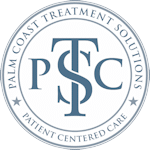Popular Post
Jump to Section
In a world where emphasis is often placed on physical health, mental health can be an overlooked aspect of well-being. The symptoms of mental health conditions are not always as obvious as those of physical illnesses, making them challenging to recognize. This blog aims to shed light on the subtle indicators of mental health issues, providing readers with a comprehensive guide on how to recognize and address these challenges.
Understanding Mental Health
Start by establishing a foundation of understanding about mental health. Discuss the importance of mental wellness, its impact on overall health, and common misconceptions about mental health conditions. Use relatable examples to make the content accessible to diverse audiences.

Types of mental health conditions
Learn about different mental health conditions like anxiety disorders, depression, bipolar disorder, and schizophrenia. Provide a brief but informative description of each situation, ensuring readers can distinguish between them. Include statistics to emphasize the prevalence of mental health issues.
Mental health conditions are a wide and diverse group of disorders that affect how people think, feel, and behave. They can range from mild to severe and can have a significant influence on a person’s quality of life.
Anxiety disorders: These are the most common type of mental health condition, affecting an estimated 40 million adults in the United States every year. Anxiety disorders are characterized by excessive worry and fear, which can interfere with a person’s everyday life. Some common anxiety disorders include generalized anxiety disorder, panic disorder, social anxiety disorder, and obsessive-compulsive disorder (OCD).
Mood disorders: These conditions are characterized by persistent changes in a person’s mood, such as depression or mania. Depression is a feeling of sadness or despair that lasts for two weeks or more and interferes with a person’s ability to function.
Psychotic disorders: These conditions are characterized by a loss of contact with reality. People with psychotic disorders may experience hallucinations (seeing or hearing things that aren’t there) or delusions (false beliefs).
Eating disorders: These conditions are characterized by abnormal eating habits that can lead to severe health problems. People with eating disorders may have an unhealthy concern with weight, shape, or food.
Trauma- and stressor-related disorders: These illnesses result from being exposed to a traumatic incident, such as a violent crime, natural disaster, or war. People with trauma- and stressor-associated disorders may experience flashbacks, nightmares, and severe anxiety. Substance use disorders: These conditions are characterized by the misuse of substances, such as alcohol, drugs, or gambling. People with substance use disorders may have an uncontrollable urge to use the substance, even though it is causing them harm.
It is important to note that this is not an extensive list of all mental health conditions. Many other conditions can impact a person’s mental health.
Mental health conditions can manifest in various ways, affecting thoughts, feelings, and behaviors. While symptoms can vary depending on the specific condition, some common signs and symptoms of mental health issues include:
Emotional distress: Persistent feelings of sadness, anxiety, irritability, or emptiness can be signs of mental health conditions like depression or anxiety disorders.
Cognitive Difficulties: Problems with concentration, memory, or decision-making can be associated with various mental health conditions.
Sleep Disturbances: Difficulty falling or staying asleep and excessive or restless sleep can be signs of mental health issues.
Changes in Appetite and Weight: Significant changes in appetite or weight, either loss or gain, can be associated with mental health conditions.
Physical Symptoms: Physical symptoms like headaches, stomachaches, or unexplained aches and pains can sometimes be signs of underlying mental health issues.
Suicidal Thoughts or Actions: Thoughts or plans to harm oneself or suicide attempts are serious signs of mental health distress.
It is important to be aware of the signs of mental health conditions so that you can seek help if you or someone you know is struggling.
Here are some tips for recognizing the signs of mental health conditions:
- Pay attention to changes in mood, thinking, and behavior. If you notice that someone is acting differently than usual, it may be a sign of a mental health condition.
- Talk to the person about what you are noticing. Let them know that you are concerned about them and that you are there to help.
- Encourage the person to seek professional help. If you are concerned about someone’s mental health, encourage them to see a doctor or mental health professional.
However, if you are concerned about your mental health, it’s crucial to seek professional help from a mental health professional or psychiatrist. They can provide an accurate diagnosis and recommend appropriate treatment options.
Seeking Professional Help
Discuss the role of mental health professionals, therapy, and medication in the management and treatment of mental health problems. Encourage normalizing by asking for help.
Palm Coast Treatment Solutions is a mental health treatment center in Palm Coast, Florida. We provide a variety of evidence-based treatment services for a variety of mental health conditions, including depression, anxiety, and PTSD. We are committed to helping our patients overcome their mental health conditions and lead full and productive lives.
If you or someone you know is struggling with a mental health condition, please contact Palm Coast Treatment Solutions today. We offer free consultations so you can learn more about our services and see if we’re a good fit for you.
Call us today at (386) 284-4151 to schedule a consultation.
We look forward to helping you on your journey to recovery.
You might also like reading:
Contact Us
CALL US NOW
Palm Coast Treatment Centers will iron out the details for you in a manner that will make you confident in your path to sobriety. That first simple call is your ticket to making Palm Coast Treatment Centers your solution for addiction. Get the freedom from addiction that you deserve today.
Call Us Now: (386) 284-4151Updated News
LATEST POSTS
Palm Coast Recovery Solutions makes numerous media outlets available to encourage you in your recovery process. Digital media literature is approved by a licensed professional and intended to guide you in your recovery path.

Years of experience
Our leadership team has extensive experience in dual-diagnosis treatment and is ready to help those who are struggling with substance use and mental health.

Specialists
Our staff consists of many licensed addiction and mental health treatment facilitators and other staff who are ready to share their experience and their success.

Happy patients
Palm Coast Treatment Centers has helped over 2,000 people who have struggled with substance use and mental health to find road to recovery.
Contact Us
GET IN TOUCH
Reaching out to Palm Coast Treatment Centers may be the most important call of your recovery process. A caring professional is waiting for your call to be your guide to addiction-free living.
Need Help? Contact Us
Areas and Cities We Serve SUD & Mental Health Treatments in Florida
OviedoOrlandoDelandJacksonvillePort St. LucieTampaAltamonte SpringsKissimmeeSt CloudWinter GardenWinter ParkClermontMelbourneSanfordDeltonaLake MaryMount DoraLeesburgThe VillagesUnion ParkSt. AugustineDupontPort OrangeOrmond BeachHolly HillDaytona BeachEdgewaterOak HillMaytownEldoraGenevaTitusvilleChristmasPort St. JohnPort CanaveralCocoa BeachOsteenSatellite BeachPalm BayRoselandSebastianFellsmereGiffordRockledge
 info@shc.health
info@shc.health 









